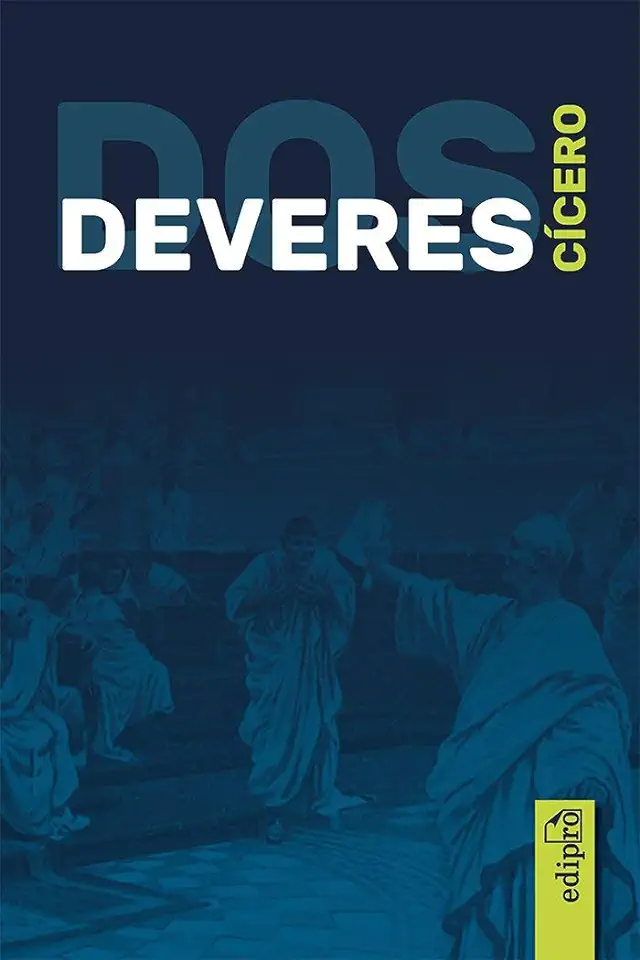
On Duties (De Officiis) - Cicero
On Duties (De Officiis) by Cicero: A Timeless Guide to Ethical Decision-Making
In a world often plagued by moral dilemmas and ethical quandaries, Cicero's "On Duties" emerges as a beacon of wisdom, offering timeless insights into the art of virtuous living and responsible decision-making. Written over two thousand years ago, this philosophical masterpiece continues to resonate with readers, providing a profound exploration of the duties we owe to ourselves, our fellow human beings, and the society we inhabit.
A Journey into the Realm of Ethics
Cicero, one of the greatest minds of ancient Rome, delves into the intricacies of ethics, examining the fundamental principles that guide human conduct and the pursuit of the good life. Through engaging dialogues between himself and his son, Marcus, Cicero presents a comprehensive framework for understanding and fulfilling our moral obligations.
The Three Pillars of Duty
At the heart of Cicero's ethical philosophy lies the concept of duty, which he categorizes into three distinct categories:
Duties to Oneself: Cicero emphasizes the importance of self-care and self-respect, urging individuals to cultivate their physical and mental well-being, pursue knowledge and wisdom, and live in accordance with their true nature.
Duties to Others: Cicero stresses the significance of justice, fairness, and benevolence in our interactions with others. He advocates for honesty, trustworthiness, and the pursuit of the common good, highlighting the interconnectedness of human society.
Duties to the State: Cicero explores the responsibilities of citizens towards their community and the state. He discusses the importance of civic engagement, the rule of law, and the preservation of social harmony.
Practical Wisdom and Moral Reasoning
Cicero's approach to ethics is not merely theoretical; he provides practical guidance on how to navigate complex moral dilemmas and make informed decisions. He emphasizes the role of reason, prudence, and careful deliberation in discerning right from wrong.
A Legacy of Enduring Influence
"On Duties" has left an indelible mark on Western thought and ethical discourse. Its profound insights have influenced countless philosophers, statesmen, and leaders throughout history, shaping the moral foundations of societies and civilizations.
Why You Should Read "On Duties"
Timeless Wisdom: Cicero's ethical teachings transcend time, offering valuable insights that remain relevant in today's world, regardless of cultural or historical context.
Practical Guidance: "On Duties" provides practical advice on how to make ethical decisions and navigate moral dilemmas, making it a valuable resource for individuals seeking to live a virtuous life.
Intellectual Enrichment: Engaging with Cicero's philosophical arguments and thought-provoking ideas stimulates intellectual growth and encourages critical thinking.
Historical Significance: As a seminal work of ancient philosophy, "On Duties" offers a glimpse into the intellectual landscape of the Roman world and the development of Western thought.
Literary Excellence: Cicero's eloquent writing style and mastery of rhetoric make "On Duties" a delight to read, offering both intellectual stimulation and aesthetic enjoyment.
Conclusion
Cicero's "On Duties" is a must-read for anyone seeking to cultivate ethical awareness, make responsible decisions, and lead a virtuous life. Its timeless wisdom and practical guidance have stood the test of time, making it an invaluable resource for individuals seeking to navigate the complexities of moral decision-making. Embrace the opportunity to embark on this philosophical journey with Cicero and discover the path to a life of integrity, virtue, and fulfillment.